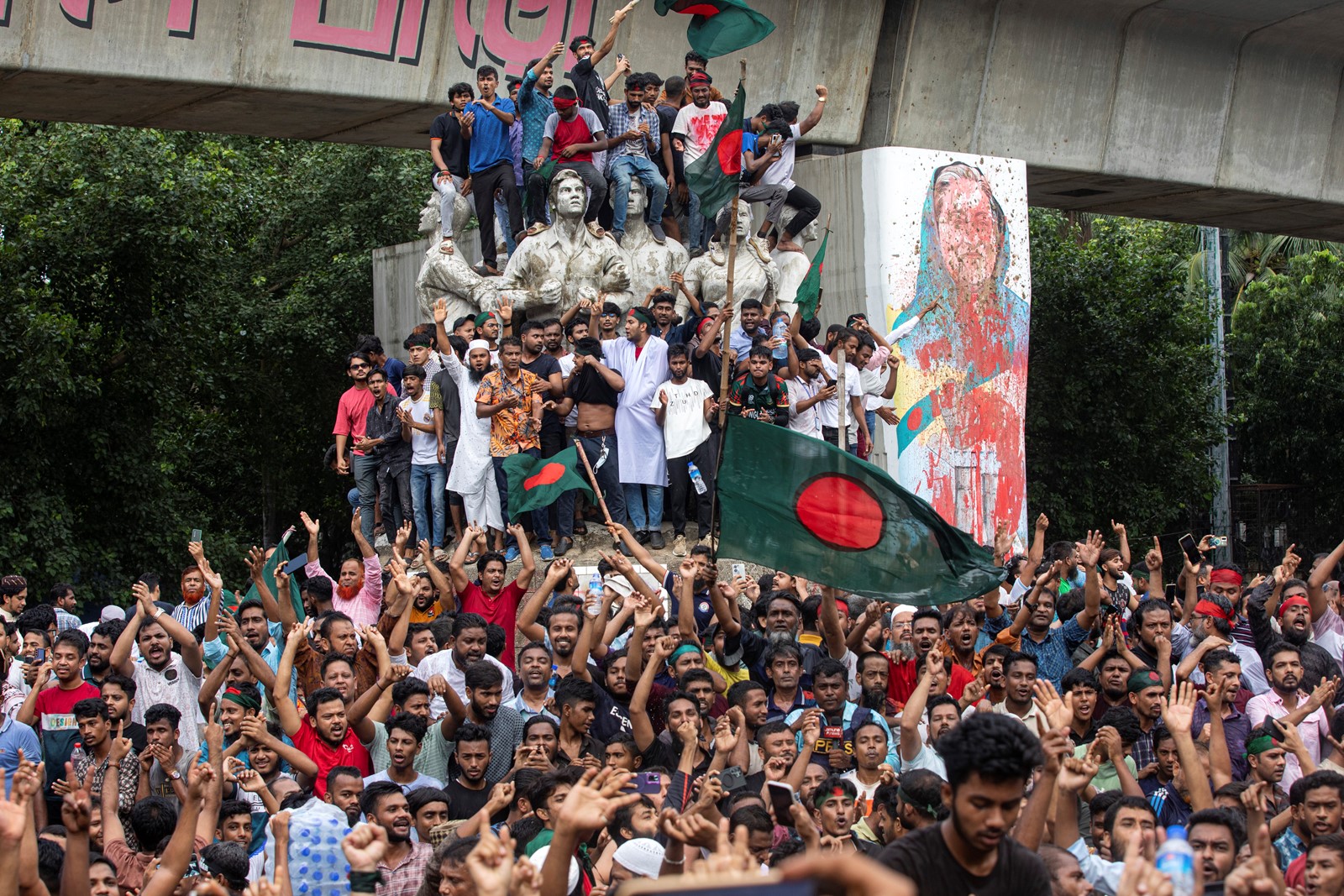
DHAKA, Bangladesh — Bangladesh’s prime minister resigned and fled the country Monday, after weeks of protests against a quota system for government jobs descended into violence and grew into a broader challenge to her 15-year rule. Thousands of demonstrators stormed her official residence and other buildings associated with her party and family.
Prime Minister Sheikh Hasina’s departure threatens to create even more instability in the densely populated nation on India’s border that is already dealing with a series of crises, including high unemployment, corruption and climate change. Amid security concerns, the main airport in Dhaka, the capital, suspended operations.
The military chief, Gen. Waker-uz-Zamam said he was temporarily taking control, and soldiers tried to stem the growing unrest.
Mohammed Shahabuddin, the country’s figurehead president, announced late Monday after meeting with Waker-uz-Zamam and opposition politicians that Parliament would be dissolved and a national government would be formed as soon as possible, leading to fresh elections.
After the embattled leader and her sister were seen on TV boarding a military helicopter, Waker-uz-Zaman sought to reassure a jittery nation that order would be restored.
In unrest Monday, at least 41 people died, according to media reports. About 200 died in protests last month and nearly 100 died Sunday, according to reports.
Hundreds of thousands poured into the streets Monday to celebrate Hasina’s resignation, waving flags and marching down avenues. But others attacked symbols of her government and party, ransacking and setting fires in buildings.
“This is not just the end of the tyrant Sheikh Hasina, with this we put an end to the mafia state that she has created,” student protester Sairaj Salekin said on the streets of Dhaka.
Protests began peacefully last month as frustrated students demanded an end to a quota system for government jobs that they said favored those with connections to the prime minister’s Awami League party. But amid a deadly crackdown, the demonstrations morphed into an unprecedented challenge to Hasina, highlighting the extent of economic distress in Bangladesh, where exports have fallen and foreign exchange reserves are running low.
Waker-uz-Zaman promised that the military would launch an investigation into the crackdown that led to some of the country’s worst bloodshed since the 1971 war of independence and fueled outrage against the government. He added that he ordered security forces not to fire on crowds.
The military wields significant political influence in Bangladesh, which has had more than 20 coups or coup attempts. But it was not clear whether Hasina’s resignation or the calls for calm would be enough to end the turmoil.
Nahid Islam, a top student coordinator, told reporters late Monday that the movement would propose an outline for the new interim government — and they would not accept any other solution.
All day, people poured into and out of Hasina’s official residence, where they set fires, carried out furniture and pulled raw fish from the refrigerators.
Crowds also ransacked Hasina’s family ancestral home-turned-museum where her father, Sheikh Mujibur Rahman — the country’s first president and independence leader — was assassinated. Elsewhere, protests were peaceful, and thousands gathered Monday evening outside the presidential palace, where the military chief, opposition politicians and the president met.
Hasina, meanwhile, landed in a city in India on the border with Bangladesh, according to a military official who spoke on condition of anonymity.
The 76-year-old was elected for a fourth term in a January vote boycotted by her main opponents. Thousands of opposition members were jailed, and the U.S. and the U.K. called the result not credible.


 PREVIOUS ARTICLE
PREVIOUS ARTICLE
